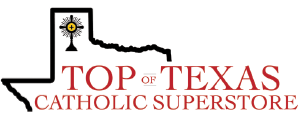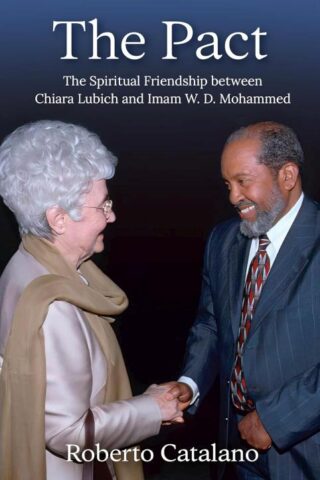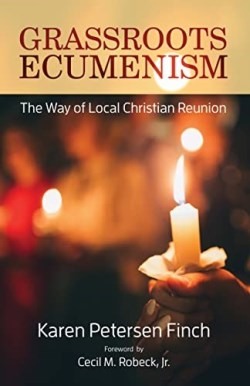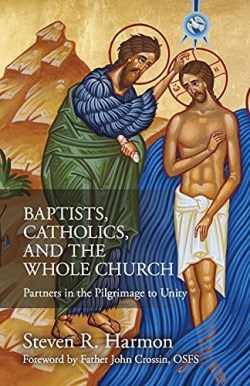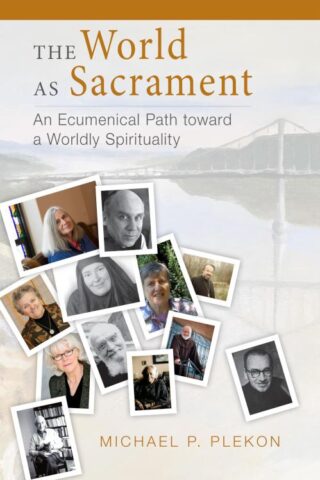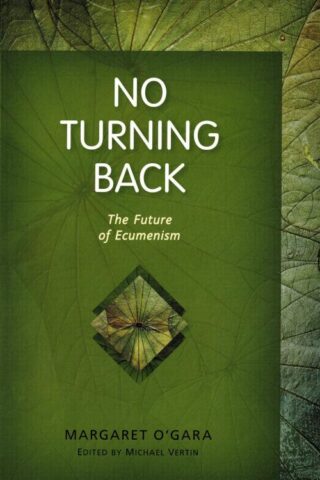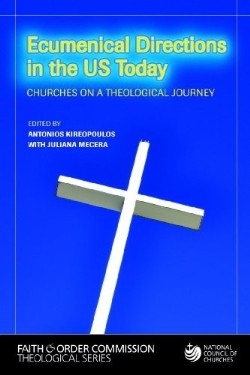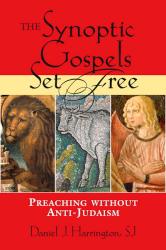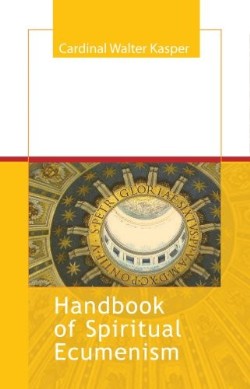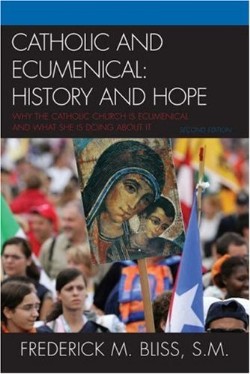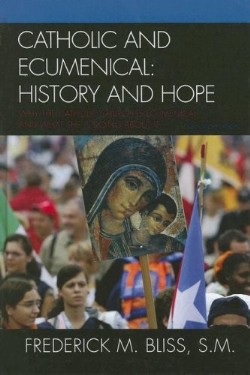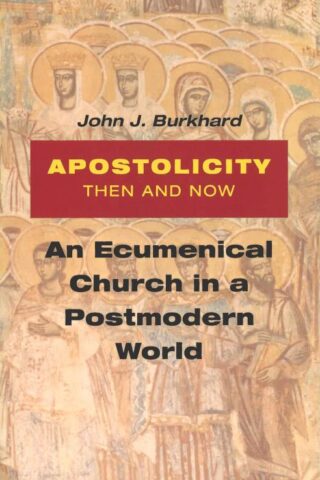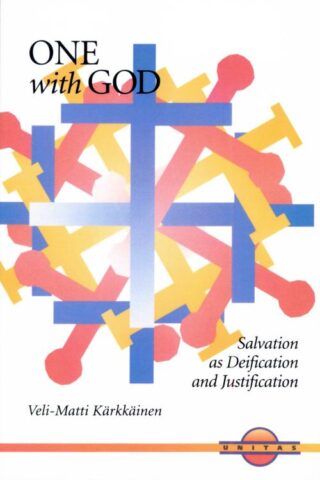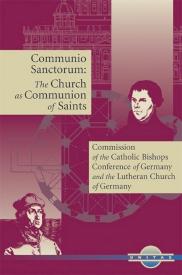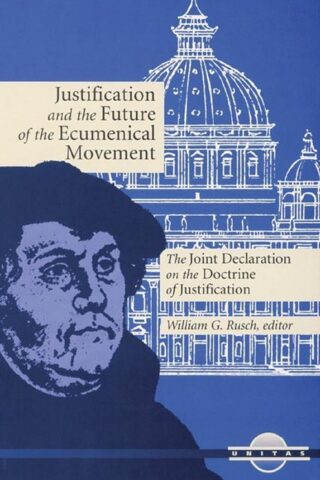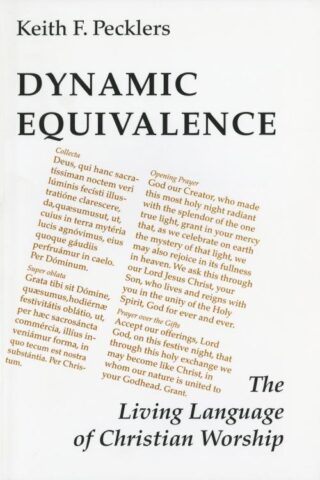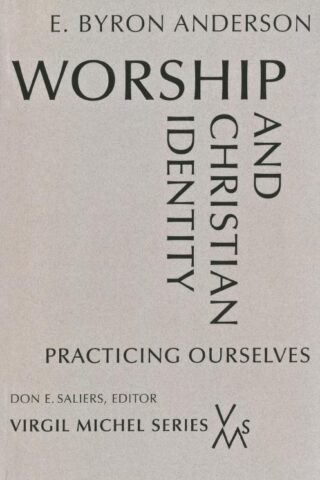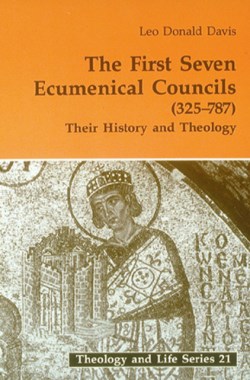Ecumenism
Showing all 19 resultsSorted by latest
-
Pact : The Spiritual Friendship Between Chiara Lubich And Iman W.D. Mohamme
$13.95Add to cartRoberto Catalano witnessed the birth and evolution of a religious, cultural, and ethnic encounter between a seemingly unlikely pair of leaders: one Christian and the other Muslim. In The Pact, he recounts their respective histories, which have captured the hearts and minds of millions worldwide who love and respect these two remarkable figures: Chiara Lubich, founder of the Focolare Movement, and Imam W. Deen Mohammed, who for thirty-three years led the Muslim American community.
-
Grassroots Ecumenism : The Way Of Local Christian Reunion
$24.95Add to cartThe quest for Christian unity has traditionally been initiated at the international level between official leaders of Christian denominations, with the effects of their dialogue expected to trickle down to local Christian communities. In Grassroots Ecumenism, Karen Petersen Finch upends this process, proposing an approach to Christian unity that begins in your neighborhood. She draws directly from her experience equipping everyday Christians to know their own Christian tradition more thoroughly and to engage thoughtfully with separated Christians down the street and around the corner.
-
Baptists Catholics And The Whole Church
$24.95Add to cartWithin the whole church, Baptists and Catholics might seem to be ecclesiological and liturgical polar opposites. The two traditions are arguably more dissimilar from one another than each is from almost any other Christian tradition. Yet as veteran Baptist ecumenist Steven R. Harmon demonstrates in this book, they share much in common that can enable them to travel together as fellow pilgrims on the journey toward a more visibly united church. Baptists, Catholics, and the Whole Church: Reflections on the Pilgrimage to Unity challenges Baptists, Catholics, and other Christians to envision their own patterns of faith and practice as included in the convergences it presents and to dedicate themselves to deeper involvement in the quest for the unity Jesus prayed his followers would manifest.
-
World As Sacrament
$24.95Add to cartNot a few figures-writers, poets, activists, teachers-have focused on the presence of the Holy One in the ordinary, on the many possibilities of worldly spirituality. In this book, pastor, teacher, and theologian Michael Plekon introduces us to several persons of faith from both the Western and Eastern Church traditions to illumine God’s presence in everyday living: the world as sacrament. In this discovery of liturgy and life entwined, Plekon shows how these lives, and our own lives, are texts about looking for and following God in everyday existence.
-
No Turning Back
$29.95Add to cartJesus’ prayer on behalf of his of followers is “that all may be one. As you, Father, are in me and I am in you, may they also be one in us” (John 17:21). No Turning Back illustrates significant developments in ecumenism during the thirty-plus years of ecumenical theologian Margaret O’Gara’s own engagement in ecumenical dialogue.
This collection of selected papers from the final fifteen years of O’Gara’s work before her untimely death in 2012 aims
*to illustrate the broad lines of ecumenism for general readers
*to share concrete details of recent ecumenical developments with specialist readers
*to encourage both groups of readers in their commitment to the pursuit of full communion among the Christian churchesAn invaluable resource for academic and ecclesial specialists in ecumenism, teachers and students of theology and religious studies, Christian ministers, and all educated Christian adults who take seriously Jesus’ prayer “that all may be one.”
-
Catholic And Ecumenical
$51.00Add to cartA Church To Change
A Changing Church
Uniform No Longer
Estranged Sisters
Reform To Reformation
Reformation In England
Leaning Toward The Future
Additional Info
Ecumenical consciousness has not always been part of the Catholic experience. Frederick M. Bliss, S.M. traces how the concern for ecumenism came about-from uneasy tension to confidence in the true grace of catholicity. This new edition follows significant developments in dialogues with the Catholic Church up to 2006 and suggests likely trends of continuing change. It studies the forces that had an impact on the Second Vatican Council, forces that continue to steer the church into relationships with other Christian communities, other religions, and the world. -
Catholic And Ecumenical
$145.00Add to cartA Church To Change
A Changing Church
Uniform No Longer
Estranged Sisters
Reform To Reformation
Reformation In England
Leaning Toward The Future
Additional Info
Ecumenical consciousness has not always been part of the Catholic experience. Frederick M. Bliss, S.M. traces how the concern for ecumenism came about-from uneasy tension to confidence in the true grace of catholicity. This new edition follows significant developments in dialogues with the Catholic Church up to 2006 and suggests likely trends of continuing change. It studies the forces that had an impact on the Second Vatican Council, forces that continue to steer the church into relationships with other Christian communities, other religions, and the world. -
Apostolicity Then And Now
$34.95Add to cartApostolicity Then and Now explores apostolicity from its origin to today. Apostolicity is a fundamental mark of the church, referring to Jesus’ faith given to, carried on, and taught-unaltered-by a continuous line of apostles. This book primarily focuses on how apostolicity pertains to the church as a whole and views apostolic succession in light of how apostolicity is applicable to the church. Scriptural, historical, theological, and ecumenical contexts provide a thorough study that includes worldviews and their impact on apostolicity.
-
1 With God
$24.95Add to cartIn recent decades the doctrine of salvation has become a key issue in international ecumenical conversations between Lutherans and Roman Catholics and also between Lutherans and Eastern Orthodox. The 1998 Joint Declaration on Justification between the Vatican and the Lutheran World Federation is a historic milestone in those efforts. Advances in ecumenical conversations have challenged the traditional opinion according to which the Lutheran view of justification by faith has been thought to be opposed to both the Eastern Orthodox doctrine of theosis (deification) and the Roman Catholic view of justification, which also includes sanctification.
In One With God Karkkainen points out that amidst all the differences between the East and West with regard to theological orientations and the language and concepts for soteriology, there is a common motif to be found: union with God. Both the Eastern understanding of theosis and the Western idea of justification have union as the ultimate goal.
-
Communio Sanctorum : The Church As The Communion Of Saints
$16.95Add to cartCommunio Sanctorum is the most recent product of the Lutheran-Catholic dialogue in Germany and the first major Lutheran-Catholic ecumenical statement since the ground-breaking Joint Declaration on the Doctrine of Justification. It focuses on the ecclesiastical issues that the Joint Declaration identified as the remaining obstacles to Lutheran-Catholic communion. It describes the church as the communion of saints and then uses that description as a framework for addressing some of the most ecumenical issues: sacraments, ministry, the role of the church in salvation, and papacy.
While not claiming to have finally settled such difficult issues Communio Sanctorum does represent a new convergence on these questions. Uniquely, the dialogue then uses this understanding of the communion of the saints to address issues related to the communion that transcends death: the nature of eternal life, prayers for the dead, veneration of the saints and Mary.
Communio Sanctorum has sparked vigorous debate in Germany and makes a major contribution both to Lutheran-Catholic dialogue and to the wider ecumenical enterprise.
-
Justification And The Future Of The Ecumenical Movement
$14.95Add to cartOn October 31, 1999, in Augsburg, Germany, officials of the Lutheran World Federation and the Roman Catholic Church signed two documents, an Official Common Statement with its Annex and the Joint Declaration on the Doctrine of Justification. The Lutheran Churches belonging to the Lutheran World Federation and the Roman Catholic Church were declaring publicly and in a binding manner that a consensus in basic truths of the doctrine of justification exists between Lutherans and Catholics.
Within four months of the Augsburg signing, the Yale University Divinity School and the Berkeley Divinity School at Yale sponsored a theological conference “Justification and the Future of the Ecumenical Movement.” The goal of the conference was to begin testing the wider import of the Joint Declaration.
The essays in Justification and the Future of the Ecumenical Movement explore the larger implications of the Joint Declaration. The majority of the chapters are the presentations made at Yale in 2000. Three of the chapters were written later than the Yale conference and are included in this collection to expand the range of the discussion and to add new insights.
-
Dynamic Equivalence : The Living Language Of Christian Worship
$29.95Add to cartS
Additional Info
In studying the history of the vernacular in worship beginning with the Christian Scriptures, Dynamic Equivalence uncovers the power of a living language to transform communities of faith.
How we pray when we come together for common worship has always been significant, but the issue of liturgical language received unprecedented attention in the twentieth century when Latin Rite Roman Catholic worship was opened to the vernacular at Vatican II. Worshiping in one’s native tongue continues to be of issue as the churches debate over what type of vernacular should be employed.Dynamic Equivalence traces the history of liturgical language in the Western Christian tradition as a dynamic and living reality. Particular attention is paid to the twentieth century Vernacular Society within the United States and how the vernacular issue was treated at Vatican II, especially within an ecumenical context.
The first chapter offers a short history of the vernacular from the first century through the twentieth. The second and third chapters contain a significant amount of archival material, much of which has never been published before. These chapters tell the story of a mixed group of Catholic laity and clergy dedicated to promoting the vernacular during the first half of the twentieth century. Chapter Four begins with a survey of vernacular promotion in the Reformation itself, explores the issue of vernacular worship as an instrument of ecumenical hospitality and concludes with some examples of ecumenical liturgical cooperation in the years immediately preceding the Council. The final chapter treats the vernacular debate at the Council with attention to the Vernacular Society’s role in helping with the implementation of the vernacular.
-
Worship And Christian Identity
$24.95Add to cartWorship and Christian Identity argues that sacramental and liturgical practices are the central means by which a church shapes the faith, character, and consciousness of its members. Consequently, for any church to set aside such practices as outdated or irrelevant is to set aside the means by which the church nurtures and sustains its theological identity. From this perspective, Anderson explores the following questions: What is the relationship between worship and belief? What is the relationship between corporate worship and the formation of Christian persons and communities? What is the relationship between worship and our knowledge of ourselves, our world, and God? How might our attention to the reform and renewal of worship and sacramental practice provide a framework for theological, evangelical, and sacramental renewal?
Questions of sacramental practice, inclusive or transformative language, and the renewal of congregational hymnody have been largely displaced by marketing questions and conflicts between “traditional” and “contemporary” worship. The hour of worship is subdivided now into increasingly specialized “target audiences” of singles, seekers, boomers, and “X-ers” with worship carefully packaged as “traditional” or “contemporary.” What at various points has been understood as a “means of grace” is now seen primarily as a “means of numerical growth.”Missing in the conflict between “traditional” and “contemporary” worship is significant discussion of what is at stake for the identity of Christian persons and communities in the shape and practice of worship. Perhaps more surprising, discussion of the theological shape and practice of worship also has been absent in discussions concerning theological standards. These absences suggest that for many in the church today, worship is a means for expressing a community’s belief but has little to do with the shape and character of that belief.
The assumption that worship is only or primarily a pragmatic means for expressing a community’s belief stands in sharp contrast to the Christian tradition. This assumption also contrasts with the insights provided by recent work in ritual studies, psychology, and faith development.
Worship and Christian Identity is an important book for faculty and students in seminary and graduate programs in liturgical studies and religious education, particularly those interested in the relationships between liturgical studies and practical theology, ritual st
-
Church Community Of Salvation
$29.95Add to cartEcclesiology is now taken for granted as an area of theological research. Before the modern age, however, the Church felt no need to define itself. What Father Tavard presents in this work is a systematic organization of the essential Christian beliefs about what the Church has been, is, and ought to be. It focuses on the awareness of “being” Church that is inseparable from the profession of the Christian faith. Keeping the present historical moment in mind, Tavard investigates the dogmatic or doctrinal nature and structure of the Church in an ecumenical spirit.
-
1st Seven Ecumenical Councils 325-787
$29.95Add to cartA careful look at the history and theology of Christianity’s most important councils: Nicea (325), Constantinople (381), Ephesus (431), Chalcedon (451), Constantinople II (553), Constantinople III (680–681), and Nicea II (787). What controversies were involved; how were they resolved; what was the overall impact? This unique work–no other work yet available in English treats this subject–illustrates the contribution of these Councils in the development and formulation of Christian beliefs. It then shows how their legacies lingered throughout the centuries to inspire–or haunt–every generation.
